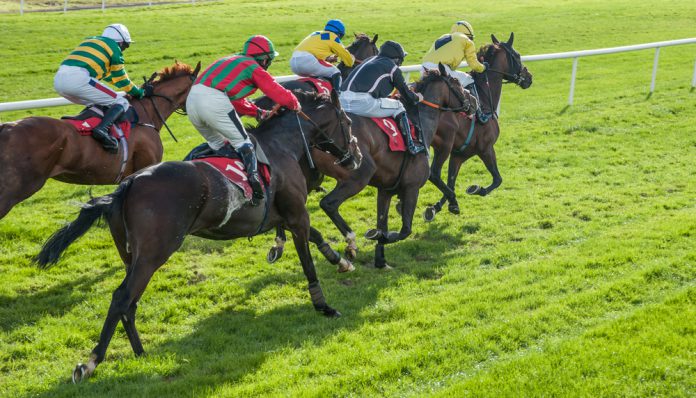Race meetings across Ireland have been given the green light to take place behind closed doors, and will be ‘held in strict adherence to Government guidelines regarding COVID-19’.
The decision, which is reported to be motivated by employment and incomes for those across the sector, will see all fixtures staged without spectators.
Following a blanket restriction on outdoor gatherings over 500 people in Ireland, five race meetings have taken place behind closed doors. Access has been limited to key personnel such as stablestaff, jockeys and trainers, while strict protocols around social distancing and sanitisation have also been rolled out.
The Board of Horse Racing Ireland have since reviewed the five meetings that have taken place since Friday, and recommended some extra measures:
- A maximum of one meeting per day to reduce impact on resources
- Jockeys’ weights to increase by 2lb from Friday, on the Flat and in National Hunt – all racecourse saunas are closed
- No owners permitted to attend race meetings
- No overseas runners will be permitted for the time being in Irish races
- A maximum of 30-minute intervals between races to assist social distancing
Nicky Hartery, Chairman of Horse Racing Ireland, commented: “These are unprecedented and sombre times and we are seeking the best ways to support the racing community and industry throughout what lies ahead.
“Health and welfare of employees and industry participants is the prime consideration and within that context, we have introduced protocols which can allow racing to continue and thousands of families who rely on the sector to maintain a livelihood.
“This will be kept under review on a daily basis and we are also planning measures for reprogramming fixtures as it becomes required. Changes to the programme will be separately announced.
“We have consulted with the Department of Agriculture, Food and the Marine throughout this process and we will continue to strictly adhere to the Government and HSE advice. We have made it clear at all times that our medical facilities and personnel will be available for the Government to use if necessary – that will take precedence above any other consideration.”
There will also be no evening meetings and no double meetings – this will reduce the draw on medical resources, a principal concern for larger racing jurisdictions with multiple meetings every day.
Brian Kavanagh, Chief Executive of Horse Racing Ireland concluded: “This is clearly a rapidly changing situation and Horse Racing Ireland will continue to liaise with the relevant Government Departments and with our health advisors.
“The executive sub-committee of Horse Racing Ireland and the Irish Horseracing Regulatory Board is meeting daily to assess the situation, and the Board of Horse Racing Ireland will continue to convene as required.
“Racecourses by their nature offer opportunities for social distancing that few other workplaces can. Nothing in Irish life is as it was a week ago, and in the same way, these are not race fixtures as we previously knew them, they are big open-air sites with very few people present and nobody on site if they are not involved: once a jockey or trainer has finished their business for the afternoon, they are required to leave.”
He continued: “Furthermore, we have carried out risk assessments according to each individual racecourse facility, and some fixtures may be subject to greater restrictions and limitations to ensure social distancing is easily achievable and maintained.
“The Board paid tribute to the flexibility shown by stable staff, jockeys, trainers, owners and employees of the IHRB, HRI, the media and broadcasters. Strict measures were imposed on them almost immediately last Friday but their actions, care and vigilance have ensured that social distancing is being observed and racecourses continue to be a safe working environment.”
























